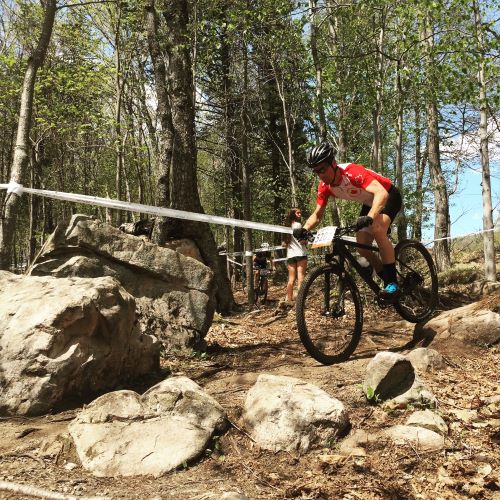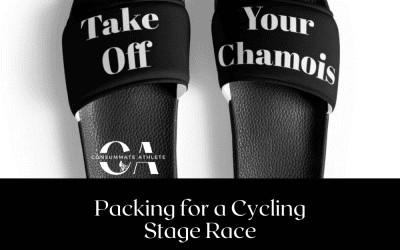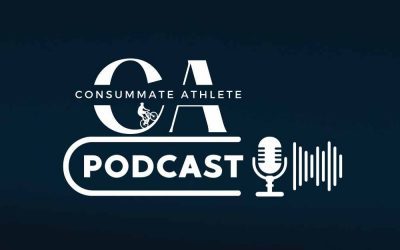GAME-PLAY
With all the hype about nutrition and sports-nutrition, it is hard to know what you should use to do your best on race day. My advice is always to practice what you *think* you should use on race day on your key workouts (intensity, volume, race-specific simulation). Race nutrition, in very simple terms, can be tested by asking if you achieved your goal, if not then perhaps you need more. If you felt sick then perhaps you did too much fuel (or not enough water). There are some variables around race nerves and hot weather, but generally, the issues on race day are due to not practicing at your race intensity, in race-like conditions (heat) and with the same fuel type, amounts as you will need on race day.
Book: Fuel Your Ride = Get Help with Your Cycling Nutrition
Remember you are Resilient and The other 23 hrs of the day
It is important to remember that hydration and fueling are important but that we can do a lot without, so if you end up short, drop a bottle, miss a feed it is fine. In short events the difference is not huge, especially if you do not get stressed about it. Practicing *WITHIN REASON* some fasted rides or less hydrated rides are worthwhile if it is likely in races. While we stress about getting that sugar-high it is more common that riders loose time trying to get bottles out of cages, carrying heavy and bulky hydration packs and just plain thinking too much about food/water and not about racing. Focus on the race when you are racing. Your training is meant to make all these practices automatic and normal, do not do different things on race day.
There are a few factors but it is not uncommon for the front-runners in a race to be lighter (slightly dehydrated) at the finish compared to the slowest finishers who take on more water and maintain or even gain weight, which can have consequences at extremes.
It is also very important to consider how you eat pre, post and during the rest of your days in the months ahead of any event. Your body composition, energy, sleep and ultimately your performance is affected by this. If you only eat sugar, eat constantly (graze), get hangry, or find your sleep is off then there are some lifestyle factors that need attention much more than the order of your race day chews, chomps and waffles do.
Want to learn more -> Check out these Consummate Athlete Podcast Episodes on Nutrition
What to use?
- Mix – Many people like the convenience of getting fuel with their hydration. This works well for some applications but be careful in extreme conditions where the mix may become less palatable or when you need to drink more. water relative to fueling (ie. hot weather). Some people find gels hard to get down and so mix may be a better option.
- Gels are nice because they are separate from your water consumption. So when it is very hot you can fuel with the gels and use cold water to douse yourself and to hydrate. These can be in the form of gel packets, gel flasks or ‘blocks’ and gummies.
- Bars/solids are generally for endurance rides and long events where you are mostly under 85% … some people can stomach more of this while others will need to be careful.
- Electrolyte tablets are nice to add some taste and light calories/electrolytes to drinks, they may help you drink more (if that is required). Many athletes make the mistake of only using this and do not end up fueling their work capacity (ie. they go slow, do not recover, risk over-training in long-term).
There are rules of thumb for fueling Hydration
(satisfy with gels, bars, mix as above)
- 200+ kcal an hour (50-60 grams carbohydrate (the more you can eat/absorb an hour the faster you will generally go BUT you also risk of GI issues. Elite Ironman athletes will push this up much higher (4-500kcal/hr). There is a balance and optimal for each of us … this can be trained and is not specific to body weight).
- Water at 16-20 oz an hour depending on heat and sweat rate … in extreme heat/exertion perhaps more but as getting to top end or higher adding salt/electrolyte is likely important/wise. (shake of sea salt is great)
Plan your event strategy ahead of time (and practice it):
- Expected time to complete x 16-20 oz water
- Expected time to complete x 200+ kcal
Example Race Day
- 6;30-7:30 (6hrs prior) = breakfast – eggs/rice, pancakes, cereal/eggs, etc. nothing ‘big’
- coffee/water / electrolyte w. water on drive
- 9:30am-11am (3hrs PRIOR TO RACE/WU) – eat a pre-race meal (cereal, rice/eggs, whey+cereal, banana and Clif bar, pasta/eggs, Peanut butter and jam/honey sandwich)
- *rare to use meat/veggies/fat/fiber in the prerace meal ** thinking about pre-race as ‘breakfast’ may be helpful
- 12:30 warmup (some people use to mix in warmup, some don’t )
- 1:30 race – Gel 5-10min before start – start with a very little amount of clear water in a bottle (empty bottle on you to cool you and to wash down gel avoid ‘choking’ on gel on lap 1 effort
- For Leadville or early endurance races – many people don’t eat 3hrs prior (they sleep!) and will eat a bar or gel on the line and then start fueling early.
- For a shorter, harder race that is in the mid-morning like Paris to Ancaster (10 am start) you might have cereal with almond milk and a banana and hard-boiled eggs
- For a noon-early afternoon start, you could have a small ‘second’ breakfast or a portable snack 2-3hrs prior. A Bar and a Banana, cereal/milk, PB&J sandwich and then you may fuel in warmup and/or on the start line
Does this fit with your strategy? What Have I missed?





